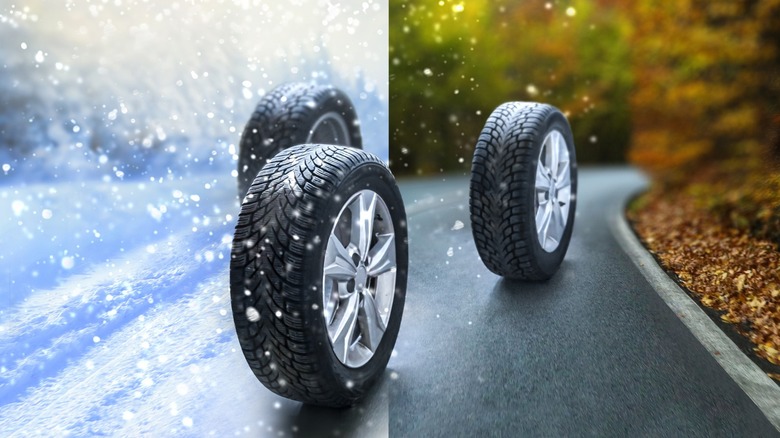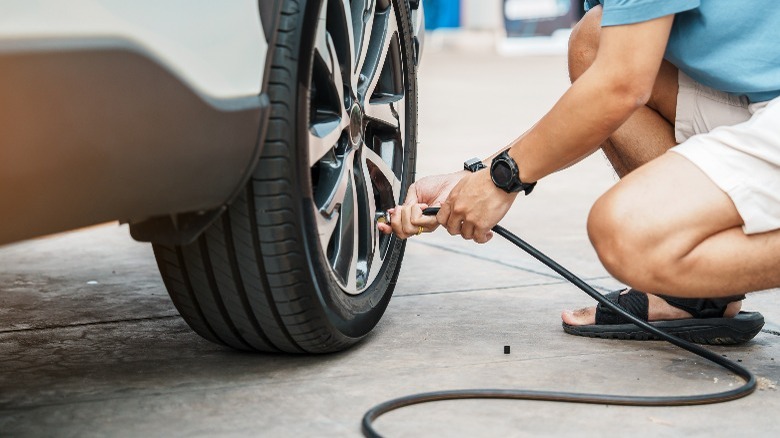Here's Why Your Car's Tire Pressure Changes In The Cold
Picture this — you wake up on a chilly winter morning excited to head to work, get in your car, and turn the ignition on, only to get bombarded by a tire pressure warning light on the dashboard. Despite there being anomalous reasons for your car's tire pressure light to be on even with an evident amount of air in your wheels, the indicator is probably stating the truth. It is quite common on colder days to suddenly have dipped levels of tire pressure. But does cold weather really affect tire pressure, and is there a way you can avoid it?
Short answer — yes, among the various things your TPMS light going off could mean, a drop in outside temperature takes your car's tire pressure with it. While ignoring this warning is never a good idea, especially for fuel efficiency, frequently spotting the orange light during winter is not a cause for concern as your tires should magically regain lost pressure as you drive.
Your tires aren't actually losing any air
Realizing why your tire pressure drops during winter requires understanding thermodynamics — just a tiny bit, we promise. As the temperature around you drops, the air molecules in your car's tire simply condense, seemingly resulting in a dip in overall tire pressure. This is also why you'll mostly notice your car's TPMS light turning back off once you've started driving around for a bit, causing your tires to heat up and the air within to spread back up normally. Generally, for every 50-degree Fahrenheit drop in temperature, the pressure in your tires goes down by 1-2 PSI. This is also true for a change in altitude, where atmospheric pressure drops the higher you climb, causing the pressure in your car's tires to go up ever so slightly.
Regardless, it's a smart move to make a habit of regularly checking your car's tire pressure. This not only keeps you and other drivers safe on the road but also maintains optimal performance. Cold weather isn't the only factor that could alter your tire pressure, as a puncture or damage to your wheel's rims can be the culprit as well. The air in your tires also escapes over time, which is completely normal. A culmination of these factors could affect how often you need to check your car's tire pressure.

